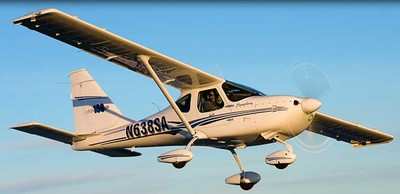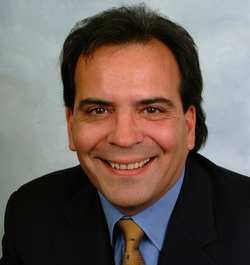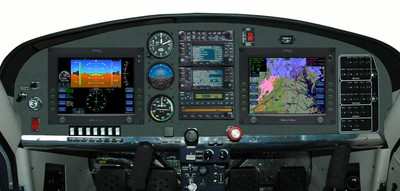Has Plenty Of Orders... But Short Of Cash
They have the interest -- and they have the orders. What
Symphony Aircraft doesn't have at the moment, however, is
readily-accessible funding... which is why the company announced
Friday it is going into protected status.

"We've been put into a position where we're seeking protection
from our creditors under Canadian law," said Symphony Aircraft
president and CEO Paul Costanzo to ANN.
Costanzo said the move to file for protection -- which is
similar to Chapter 11 reorganization in the US -- comes as the
company faces a variety of financial issues stemming from the cost
of ramping up production of its SA160 two-place trainer aircraft,
development of the glass-cockpit version and a diesel-engined
variant of the plane.
 The situation was
further aggravated by the recent strength of the Canadian dollar
against US currency -- as well changes in the Canadian investment
market, which Costanzo says "absolutely stinks."
The situation was
further aggravated by the recent strength of the Canadian dollar
against US currency -- as well changes in the Canadian investment
market, which Costanzo says "absolutely stinks."
"There was a big change in the venture capital market with the
change in government in Quebec in mid-2003," said Costanzo (right).
"We're too big a project [to qualify] for small funds, and too
young as a startup for institutional funds."
Shareholders in Symphony have decided "we want to keep going,
without doing something significant," Costanzo added -- in
particular, a possible relocation of the company's Three Rivers,
Quebec production line to a location south of the border.
"Unless we get the financial solution we need in the very short
term, there's a very, every big chance Symphony will move to the
US," Costanzo said.
"There's no doubt in my mind this product is going to do
fantastic, but as it's worked out -- Quebec isn't the place to be,"
Costanzo said. "Despite orders we've got, despite raving reviews on
the product... there hasn't been enough to capture interest in
Quebec."
Speaking of orders -- the company is not hurting there. Costanzo
said the company has delivered 15 planes to date, with a firm order
backlog of another 20. In April, Symphony also announced a letter of
intent with Spartan College of Aeronautics to replace
its current fleet of Cessna 152s and 172s with SA160s.
For the moment, Costanzo said, production has slowed. The first
glass-cockpit SA160 -- featuring Avidyne's Entegra system -- is
ready for delivery, with the second expected in mid-July... but as
of now, the planes must sit at the factory.

"The board decided to go into protection, in part, as we still
don't have type-certificate on the glass-cockpit planes -- so we're
unable to turn those planes into cash," Costanzo said. Symphony
hopes to have the Canadian TC in hand by mid-July, with FAA
certification following one month later.
 The company's creditors
in the general aviation market -- such as Avidyne and Lycoming
-- have expressed willingness to work with the company, Costanzo
said. The problems have come from smaller creditors outside the
industry.
The company's creditors
in the general aviation market -- such as Avidyne and Lycoming
-- have expressed willingness to work with the company, Costanzo
said. The problems have come from smaller creditors outside the
industry.
The company's dealer network has also stood by the company "100
percent," added marketing consultant Jim Moore.
Costanzo estimates Symphony will need between $6 and $10 million
to get back on its feet -- which the company will use to get the
production line ramped up, seek certification for the Thielert
diesel-powered version of the SA160, and continue development of a
four-place aircraft.
While to date Canada hasn't proven to be a hospitable location
for the company, Costanzo said, he adds the company would much
rather remain where it's at, instead of facing the added costs --
both in money and in time -- of relocating elsewhere.
"This is a 'last call' to get capital in Canada," Costanzo
said.
 ANN's Daily Aero-Linx (05.06.25)
ANN's Daily Aero-Linx (05.06.25) ANN's Daily Aero-Term (05.06.25): Ultrahigh Frequency (UHF)
ANN's Daily Aero-Term (05.06.25): Ultrahigh Frequency (UHF) ANN FAQ: Q&A 101
ANN FAQ: Q&A 101 Classic Aero-TV: Virtual Reality Painting--PPG Leverages Technology for Training
Classic Aero-TV: Virtual Reality Painting--PPG Leverages Technology for Training Airborne 05.02.25: Joby Crewed Milestone, Diamond Club, Canadian Pilot Insurance
Airborne 05.02.25: Joby Crewed Milestone, Diamond Club, Canadian Pilot Insurance






